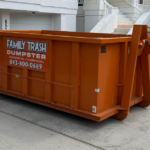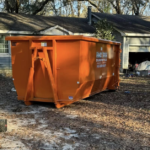Did you know that businesses generate about 250 million tons of waste each year in the United States alone? Managing this waste effectively is crucial for both the environment and your company’s bottom line. A well-organized waste management plan can help your business reduce waste, comply with regulations, and even save money. Below, we outline how to create a waste management plan tailored to your business needs.
Assess Your Current Waste Situation
The first step in setting up a waste management plan is to evaluate your current waste disposal practices. This assessment involves collecting data on the types and quantities of waste generated by your business. You can start by conducting a waste audit. This process helps identify what waste is produced, how often it is produced, and how it is currently disposed of.
For example, a restaurant might generate food waste, packaging waste, and recyclable materials. By knowing exactly what you produce, you can take steps to reduce it. It is also helpful to determine if your business uses commercial dumpster rental services or commercial dumpster services to manage waste. Understanding your existing arrangements can lead to better planning.
Set Clear Waste Management Goals
Once you have a clear picture of your current waste situation, the next step is to set specific waste management goals. These goals should be measurable and realistic. For instance, you may aim to reduce waste by 20% within one year or increase recycling rates to 50% within six months. Setting clear goals will provide direction for your waste management efforts.
In addition, it is vital to involve your team in this process. They can offer valuable insights and suggestions. This collective input will make it easier to achieve your goals.
Choose the Right Waste Management Services
Selecting the right commercial dumpster rental services or commercial dumpster services is essential for effective waste management. Research various service providers and compare their offerings. Consider factors such as cost, size of dumpsters, pickup frequency, and recycling options.
You should also check if the company complies with local regulations. Ask for recommendations or read reviews to ensure you choose a reliable service. Your waste management partner plays a significant role in helping you meet your waste management goals.
Implement Recycling and Composting Programs
Incorporating recycling and composting into your waste management plan can significantly reduce the amount of waste sent to landfills. Educate your employees about what can and cannot be recycled. Clearly label recycling bins to avoid contamination.
If your business generates organic waste, consider setting up a composting program. This can be especially beneficial for restaurants, cafés, and grocery stores. Composting not only reduces waste but also provides a valuable product that can be used for landscaping or gardening.
Monitor and Adjust Your Plan
A waste management plan is not static. Regularly monitor your waste disposal practices and review your goals. This allows you to identify areas for improvement and make necessary adjustments. For example, if you find that your recycling rates are low, you may need to re-educate staff or change your recycling service provider.
Establishing a regular review process ensures that your waste management plan remains effective and aligned with your business objectives. You may also consider conducting another waste audit after a year to see how much progress has been made.
In summary
Setting up a waste management plan for your business is essential for reducing waste and saving money. Start by assessing your current waste situation, then set clear goals. Choose the right commercial dumpster rental services or commercial dumpster services like Family Trash SC, and implement recycling and composting programs. Finally, monitor your progress and adjust your plan as needed. By following these steps, your business can contribute to a cleaner environment while benefiting financially.






